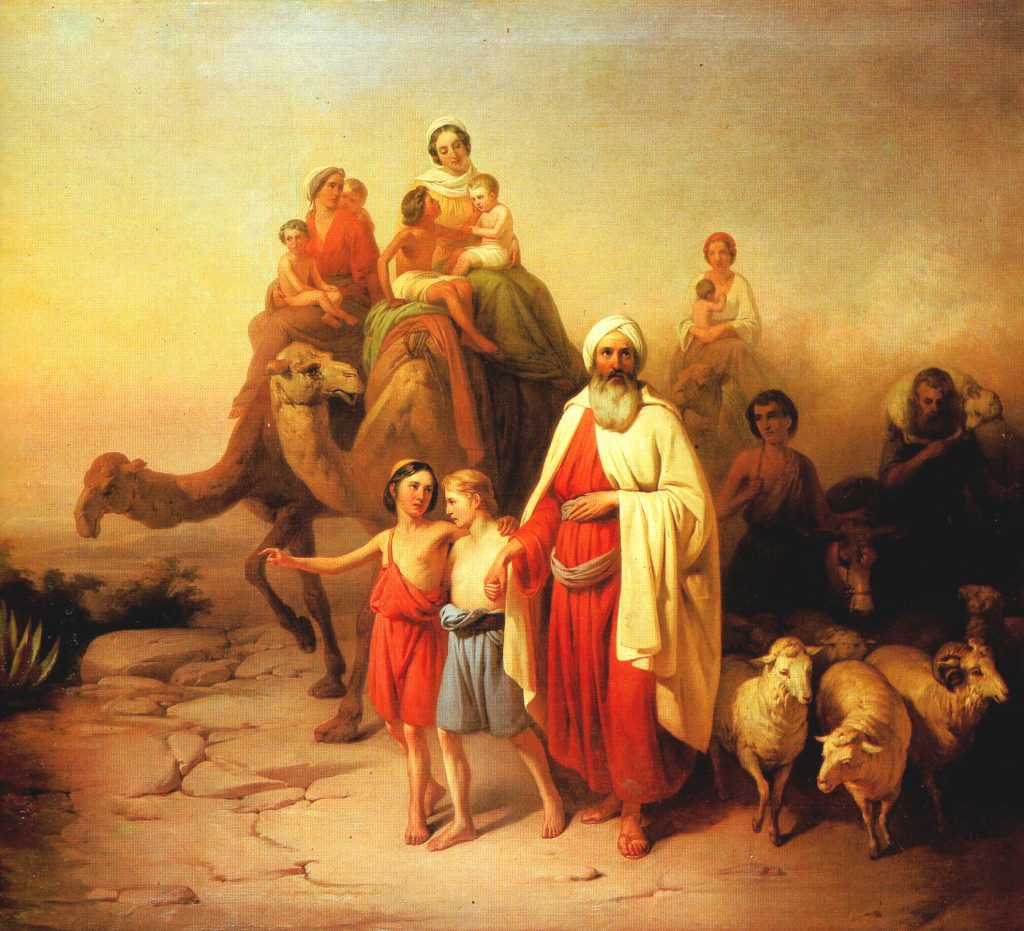Today’s Parashah {פרשה} (weekly Torah portion) is ‘Lech-Lecha’ {לך לך} (Hebrew for ‘go for you’). This is the third weekly Torah portion in the Book of Genesis and can be found in Genesis 12:1–17:27.
The name of the weekly Torah portion comes from the fifth and sixth words (in the original Hebrew) of the opening verse:
“Now the LORD said to Abram, “Go from your country and your kindred and your father’s house to the land that I will show you.” (Genesis 12:1)
Many Jewish Bible commentators have dealt with the very detailed request God had asked of Abram – meaning, why there was a need to specifically mention ‘go from YOUR COUNTRY and YOUR KINDRED and YOUR FATHER’S HOUSE.’ After all, it is very clear to mention just one of these THREE?

One of the more interesting answers to this question, can be found in the ‘Mishnah’ {משנה} – the codex of the Jewish oral law that was composed almost 2000 years ago in the Land of Israel. There, one can find the following words:
“Reflect upon three things and you will not come to the hands of transgression. Know from where you came, where you are going, and before whom you are destined to give a judgement and accounting.”
This teaching was in fact an interpretation to Genesis 12:1 that appears in the original Hebrew as: ‘Artzecha’ {ארצך} (‘your country’), ‘Molad’techa’ {מולדתך} (‘your kindred’) and ‘Bet Avicha’ {בית אביך} (‘your father’s house).
The original Hebrew terms comprise the THREE things the Mishnah’s teaching mentioned:
‘Molad’techa’ (‘your kindred’), comes from the Hebrew root ‘Y-L-D’ {י-ל-ד} which means ‘birth’ and so refers to ‘know from where you came.’
‘Artzecha’ (‘your country’), comes from the Hebrew root ‘A-R-Tz’ {א-ר-צ} which means ‘land’ but also ‘soil’ and ‘dust’ and refers to ‘where you are going’ as in the well-known phrase from the Book of Genesis ‘for you are dust, and to dust you shall return.’
‘Bet Avicha’ (‘your father’s house’) which according to this interesting interpretation speaks about ‘Avicha She-Ba-Shamaim’ {אביך שבשמים} – Hebrew for ‘your Heavenly Father’ and that one day ‘before Him you are destined to give a judgement and accounting…’
